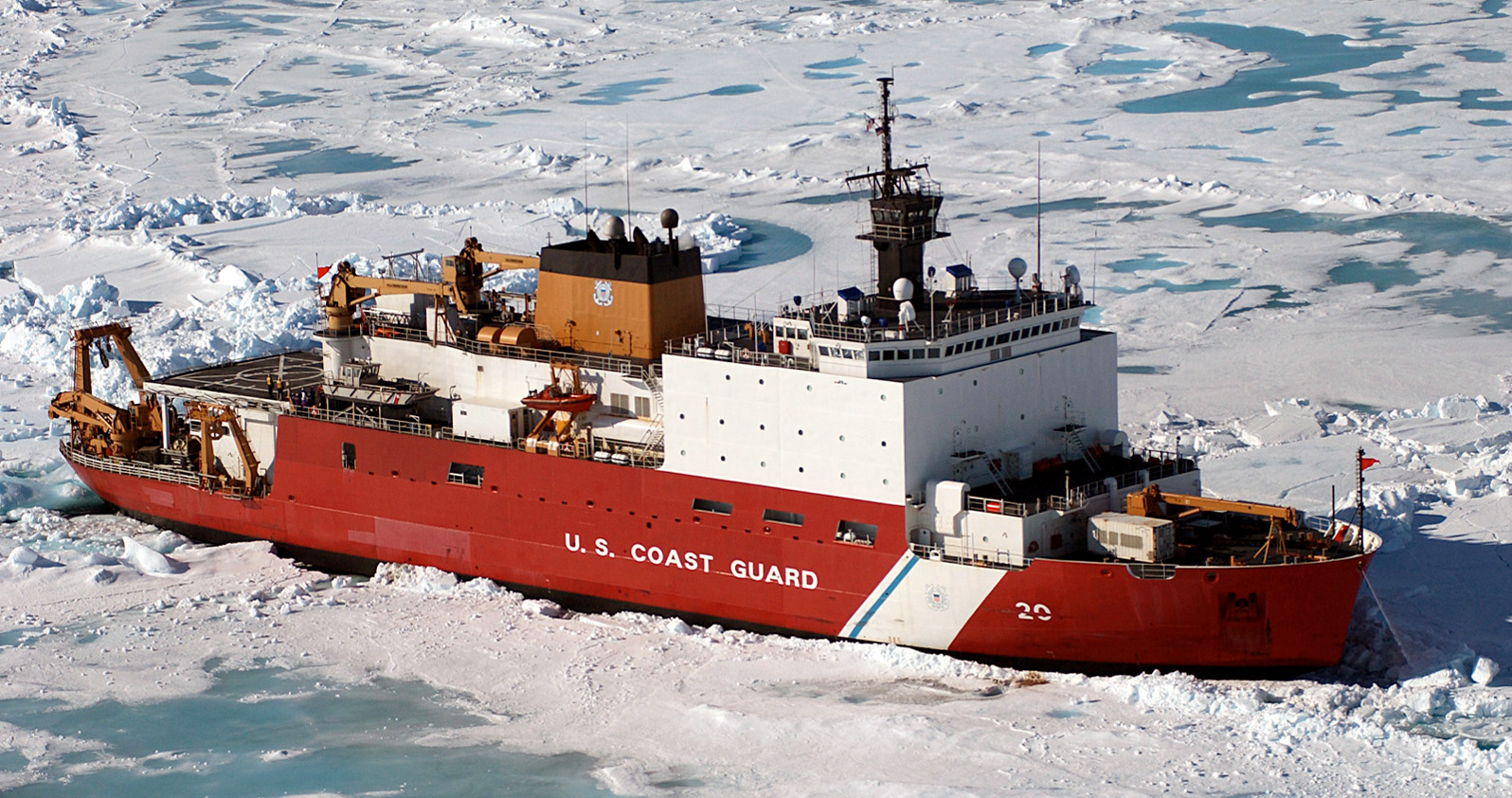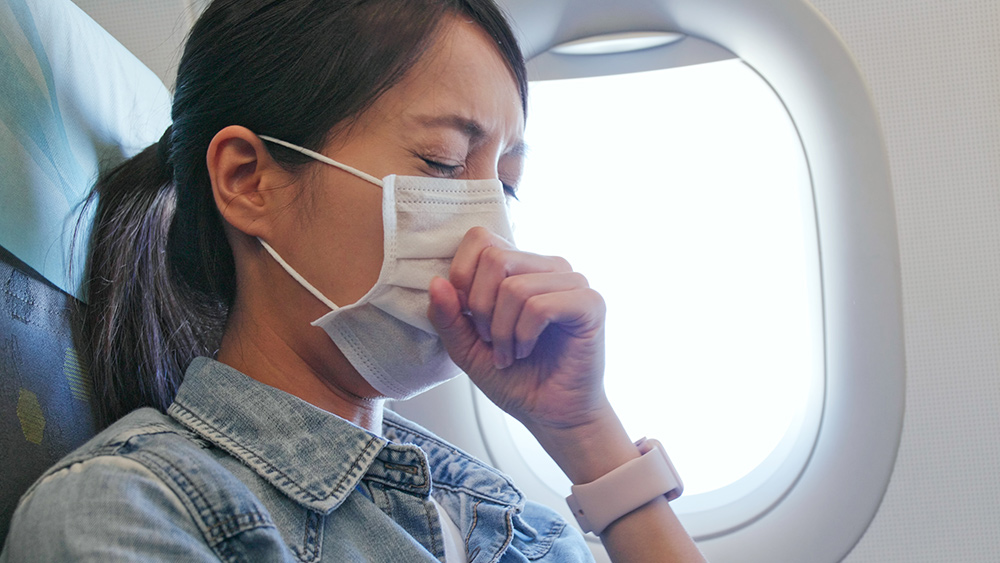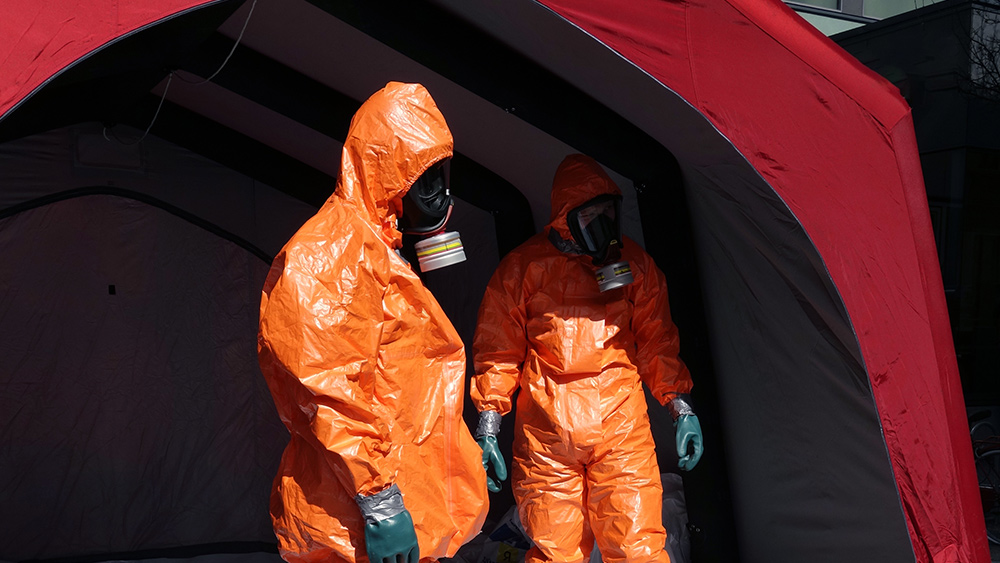Coronavirus leaves 100 scientists STRANDED in the Arctic; closed borders prevent relief from coming in
03/29/2020 / By Arsenio Toledo

Around 100 scientists are stranded on a research ship in the Arctic after countries all over the world shut down their borders due to the coronavirus pandemic. The scientists are members of a project called the Multidisciplinary Drifting Observatory for the Study of the Arctic Climate, or MOSAiC. The expedition’s goals include deepening human understanding of the Arctic environment.
The MOSAiC scientists all lived on board the Polarstern, a large German icebreaking vessel, which receives supplies whenever the 100 scientists are rotated out every six weeks for another group of around 100 researchers. The current group boarded the ship in February, and were scheduled to conduct their research until mid-April, when they were supposed to be replaced by a new team flying out from the Arctic archipelago of Svalbard, Norway.
However, all of their plans changed due to the global coronavirus pandemic. On Wednesday, the local government of Svalbard closed its borders to outsiders. The rest of Norway had closed its borders to foreigners on March 16, but Svalbard’s local government has a lot more leeway to decide on domestic matters and kept its borders open for a week longer. (Related: EU proposes closing ALL borders, effectively placing mainland Europe under lockdown.)
This means two things: The old team won’t be able to disembark from the Polarstern and the new research team won’t be able to leave Svalbard at their originally scheduled date. As a result, around 100 scientists and support personnel who were planning to relive the current Polarstern crew by mid April no longer had a flight out of Svalbard.
“There’s no way to carry out these flights for the crew rotation, said Markus Rex, an atmospheric scientist for the Alfred Wegener Institute, Helmholtz Centre for Polar and Marine Research and MOSAiC’s expedition leader. “That has a major impact on how we plan the expedition.”
Luckily, they were able to reach an agreement with the Norwegian government, wherein the new team would stay in quarantine for 14 days, with health officials monitoring them for potential COVID-19 symptoms. Should they be cleared after the quarantine period, they will be allowed to leave. However, their planned chartered flight out to the Polarstern will no longer be available to them. MOSAiC organizers are now working to find an icebreaker ship willing to go out into the Arctic Ocean to meet the Polarstern.
Alternatively, organizers are also looking into whether the Polarstern’s next resupply can be moved ahead of scheduled. MOSAiC had chartered Swedish icebreaker Oden to head north and rendezvous with the Polarstern in June. Organizers are looking into possibly moving that meeting forward to mid-May or earlier and sending a relief force with it.
In either scenario, the scientists currently on the Polarstern will be stuck on the ship for at least two weeks longer than they originally intended.
Rex said that the people on Polarstern “are safe, they are in a virus free environment, they have all the provisions they need. They are focusing on science.” While the cancellation of flights and the shuttering of borders leaves the future of the MOSAiC expedition in question, many of the scientists are determined to soldier on. However, Rex fully expects that many researchers signed up to join the expedition in the following months may not be able to leave their respective countries due to travel restrictions.
Svalbard preparing for the arrival of COVID-19
Svalbard, the agreed-upon embarkation for all of the scientists for the Polarstern, still has no confirmed cases of COVID-19. However, its home country, Norway, has, as of Friday, 3,156 confirmed cases, including 14 deaths.
Even so, the local government of Svalbard is preparing as much as it can for the first cases to arrive in the small archipelago of 2,300 residents.
“We have not tested many people,” said Bente Brataas, section chief at Longyearbyen Hospital, “but those who we have tested, are in home quarantine. It may take up to three days before we receive answers to the tests.”
The Governor of Svalbard, Kjerstin Askholt, is currently following the recommendations of the Norwegian central government when it comes to emergency preparedness.
Meanwhile, Svalbard residents have begun preparing for the worst. Ronny Stromnes, manager of the island’s only convenience store, has been storing extra dried meats, canned milk, coffee and toilet paper – both for sale to other residents and for personal consumption. Stromnes says that the worst case scenario for Svalbard is that it becomes completely isolated due to the halting of travel into the archipelago.
The lack of travel into Svalbard means that the local economy, which is heavily reliant on the tourist industry, may collapse. For example, John-Einar Lockert, manager of tourist company Svalbard Adventures, is already preparing his staff for the possibility of layoffs. He sent out a notice warning his staff of this. While they have receives several bookings for the summer, there’s no telling whether those will be able to push through due to
On the other hand, Stromnes is concerned that the pandemic may overwhelm Svalbard’s small hospital.
“We are a small and vulnerable community with 2,300 residents. We have made plans for how to run society here if the virus gets here, such as how to ensure a continuous supply of energy and goods. But we are obviously not equipped for 30 to 40 people to be hospitalized.”
Sources include:
WHO.int [PDF]
Tagged Under: Arctic, China, coronavirus, covid-19, emergency preparedness, Flu, government, infections, Norway, outbreak, pandemic, research, stranded, superbugs, Svalbard, virus



















